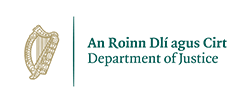What is Corruption?
Corruption can be broadly defined as the abuse of entrusted power for private gain. Corruption exists in and concerns every country in the world, including Ireland. Corrupt activity can be engaged in by private individuals, public officials and businesses. Corruption can take many forms including conflicts of interest, undue influence and the giving and taking of bribes.
Who is responsible for anti-corruption policies in Ireland?
Responsibility for the development and implementation of anti-corruption policies in Ireland does not rest with any one body. Instead, many departments, agencies and bodies have roles and responsibilities in this area. The competence to prevent, detect, investigate and prosecute corruption is spread across An Garda Síochána and a number of other agencies with a mandate to tackle corruption.
These include tribunals of inquiry, commissions of investigation, inspectors, the Central Bank of Ireland, the Standards in Public Office Commission (SIPOC), local authorities, the Ombudsman, Parliamentary Committees on Members’ Interests, the Garda National Economic Crime Bureau, the Criminal Assets Bureau (CAB), the Office of the Revenue Commissioners, the Corporate Enforcement Authority (CEA), the Competition and Consumer Protection Commission, the Comptroller and Auditor General, the Public Accounts Committee and the Director of Public Prosecutions.
Evaluation of Ireland
Ireland is a party to a number of anti-corruption international instruments. These are the United Nations Convention against Corruption (UNCAC), the Organisation for Economic Co-operation and Development (OECD) Convention on Combating Bribery of Public Officials in International Business Transactions and the Council of Europe instruments monitored by the Group of States against Corruption (GRECO). As such, Ireland is subject to the evaluation processes and monitoring arrangements associated with these instruments. The peer review monitoring systems associated with these instruments are conducted in successive phases and each phase normally focuses on the implementation of specific parts of the relevant instrument or parts of the public service.
More information on these Conventions and the evaluations of Ireland is contained under the ‘Conventions’ and ‘Publications’ sections of this website.
Ireland’s ranking on Corruption
Transparency International’s Corruption Perceptions Index (CPI) was published on 31 January 2023. Ireland’s ranking of 10 out of 180 countries is a solid indication of how clean the country is considered to be when examined through the lens of perceived levels of public corruption..
The EU Commission’s 2021 Eurobarometer on Corruption provides details in relation to the experiences and perceptions of EU citizens relating to the problem of corruption, and of their attitudes towards the various institutions in their countries responsible for tackling this problem.
The Consequences of Bribery and Corruption
Corruption negatively impacts society, individuals and business. It undermines democracy and the rule of law; allows organised crime, terrorism and other threats to human security to flourish; distorts markets and drives away investment; increases inequality; damages the environment; denies access to basic services; provides the wrong incentives and undermines innovation.
Bribery and corruption have serious consequences for companies operating in an international business environment. In such an environment, companies are operating under serious pressure, competition is stiff and margins are tight. This, in conjunction with trying to adapt to unfamiliar legal systems, conventions and specific political circumstances, can make doing business very difficult. There is therefore much depending on whether a company can win a contract, obtain a licence or market a product in good time.
In a 2016 publication (Corruption: Costs and Mitigating Strategies) the International Monetary Fund (IMF) estimated that in 2015 Bribery alone cost $1.5 to $2 trillion US Dollars (roughly 2% of global GDP). The World Bank has also estimated that 1,000 Billion US Dollars are paid in bribes annually.
- The consequences of bribery and corruption are very serious from an economic perspective, with the World Bank estimating that 0.5% of GDP is lost each year.
- It also creates and unfavourable business environment, particularly in relation to trade and Foreign Direct Investment and it allows organised crime to thrive unimpeded.
Tackling Bribery and Corruption Globally
Thankfully, the fight against corruption has been strengthened substantially on national and international levels in the last number of years and in the following ways.
- The international community has committed itself to a number of international treaties to establish corrupt practices both at home and abroad as criminal offences.
- As part of process to improve prevention and detection individual countries are monitored to see how they comply with their international commitments and whether additional efforts are necessary.
Ireland’s Commitment to Tackling Bribery and Corruption
Irish law criminalises bribery and corruption. Most recently with the enactment of the Criminal Justice (Corruption Offences) Act, 2018. This Act consolidated existing offences in to one Act and created a number of new offences such as trading in influence and intimidation. Most offences carry a penalty of 10 years imprisonment and/or an unlimited fine upon conviction. Irish corruption law has a global reach and is applicable to Irish Nationals, Irish Companies and persons ordinarily resident in Ireland when abroad.
- Ireland is very committed to ensuring that bribes to officials either at home or abroad are treated as criminal offences.
- It is also committed to raising awareness of its obligations under international treaties or conventions so that a level playing field can be created for all companies operating internationally.
Review of Anti-corruption and Anti-fraud structures in Ireland
In November 2017, the Government published a suite of regulatory, corporate governance and law enforcement measures – the ‘White-collar crime Package’ – aimed at enhancing Ireland’s ability to combat corporate, economic and regulatory crime. This included a commitment to “review and strengthen anti-corruption and anti-fraud structures in criminal justice enforcement”. To that end, the then Minister for Justice and Equality appointed Mr. James Hamilton, former Director of Public Prosecutions and anti-corruption expert, to act as independent chair of a multi-agency Review Group. In addition to representatives from the principal State agencies and relevant regulatory authorities concerned with the investigation and prosecution of corruption offences, the Group included members from outside of the public sector.
The Hamilton Review Group makes a number of recommendations in its report. The Recommendations can be broadly categorised into:
- Structural or systemic
- Resourcing
- Legislative
An implementation plan details the exact actions to be taken across government and by State agencies to progress the Hamilton Review Group recommendations, and sets out timelines for the completion of these actions.
Advisory Council against Economic Crime and Corruption
The establishment of the Advisory Council against Economic Crime and Corruption was one of the recommendations made in the Review of Structures and Strategies to Prevent, Investigate and Penalise Economic Crime and Corruption. The review was led by James Hamilton, the former Director of Public Prosecutions.
An implementation plan for the recommendations was agreed by Government and published by the Minister for Justice in April 2021. The implementation plan sets out 22 actions to be completed by State agencies and Departments to progress the Hamilton report’s recommendations, and sets timelines for the completion of these actions.
One of the most significant actions in the implementation plan is the establishment of a cross-sectoral, partnership-based Advisory Council against Economic Crime and Corruption at the centre of Government. The Council will advise and make proposals on strategic and policy responses and will be responsible for developing a multi-annual strategy to combat economic crime and corruption.
The Advisory Council was established on 30 May 2022 on a non-statutory basis and consists of 19 members and an independent Chair:
- James Hamilton, a former Director of Public Prosecutions is the Chair.
- 13 members are drawn from across the public sector, including the relevant government departments, enforcement and regulatory agencies. These bodies nominate their own representatives.
- Two are members who have an understanding of the interests of businesses, the financial sector, and employers, and who possess a good knowledge and understanding of the particular issues faced by the Irish corporate and financial sector in relation to economic crime and corruption.
- Two members are academics specialising in anti-corruption, economic crime, or a related field.
- Two are members who have an understanding of the interests of civil society, particularly those of employees, consumers, victims of economic crime and corruption, etc.

